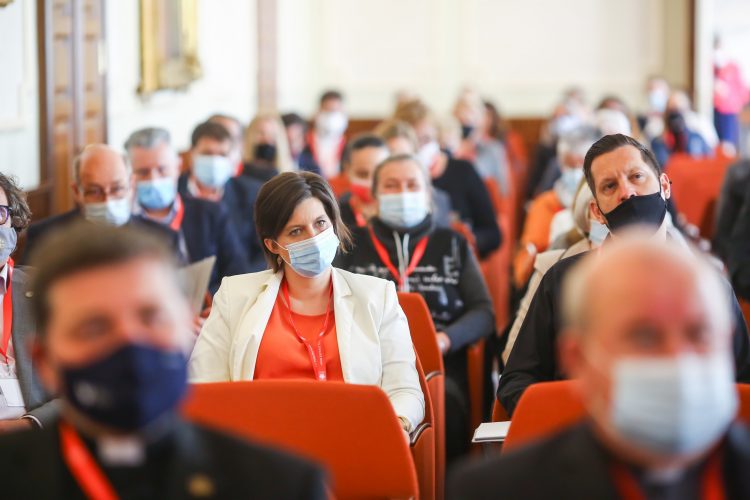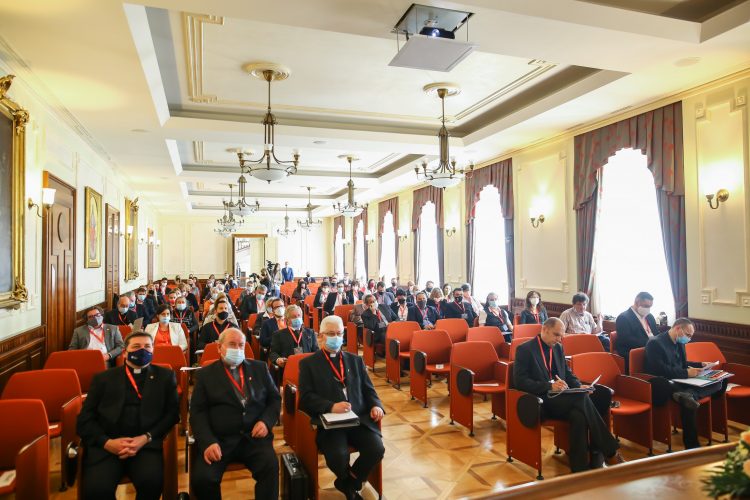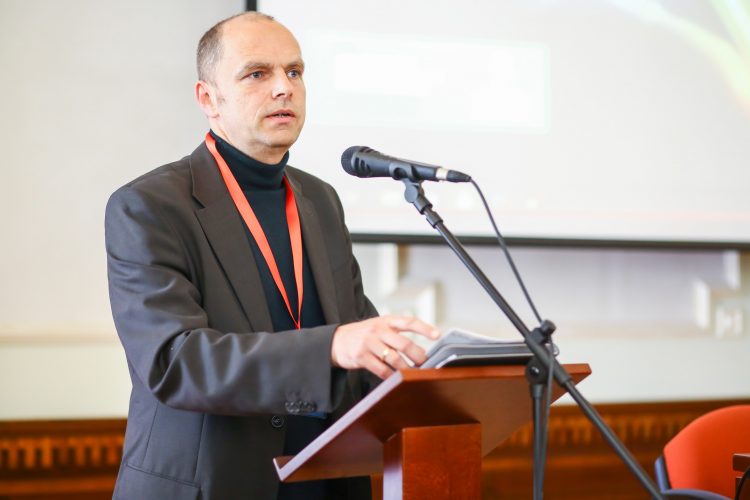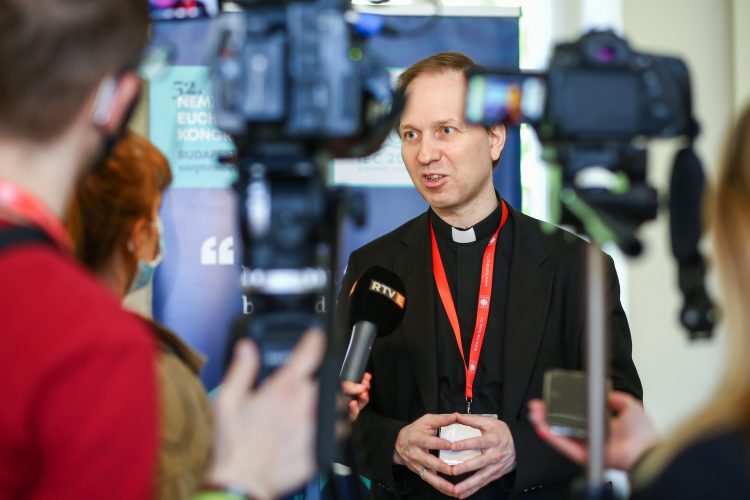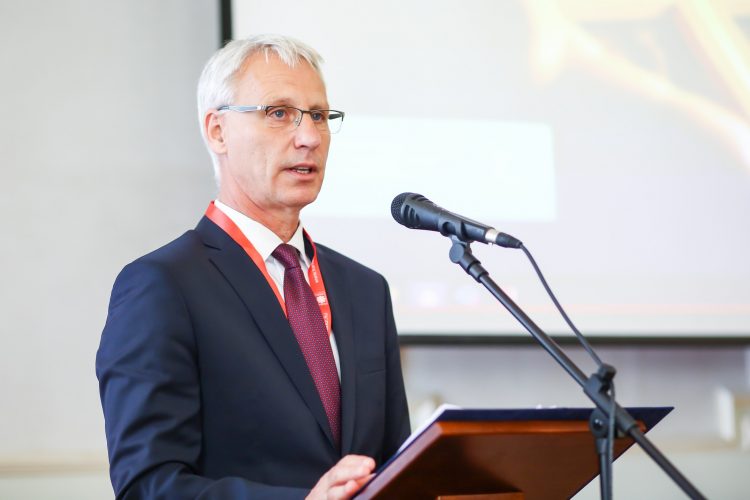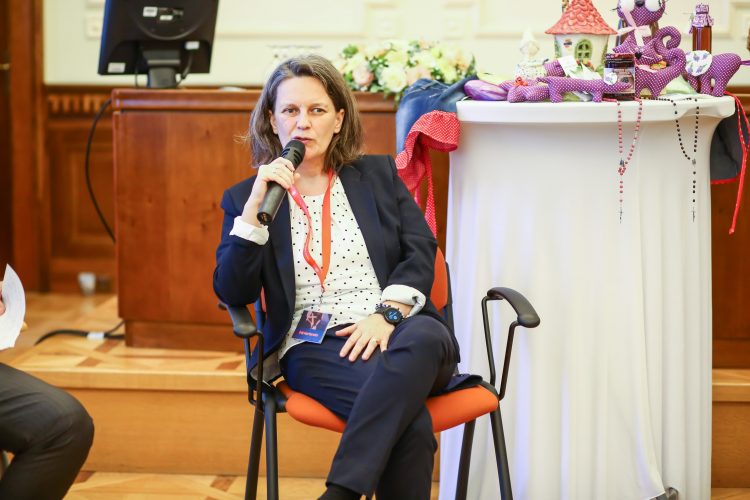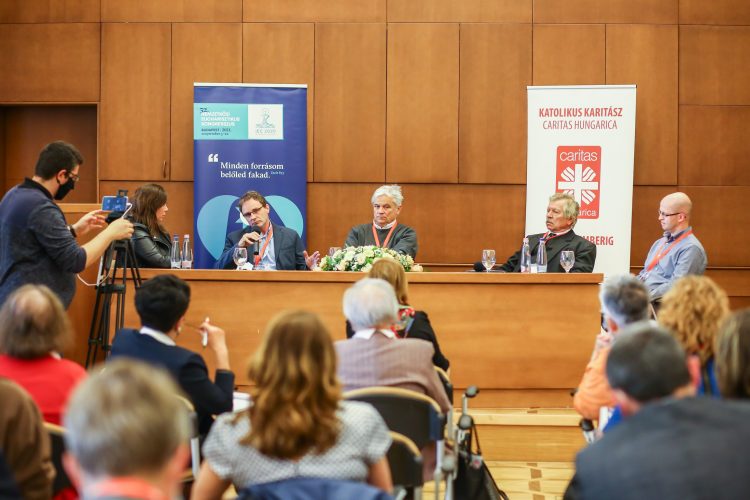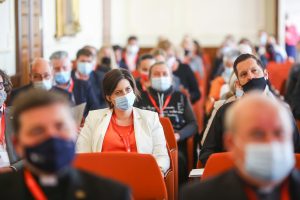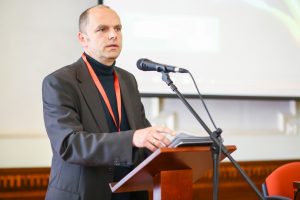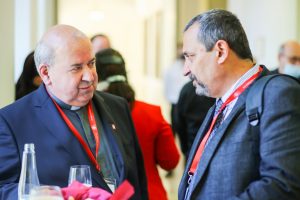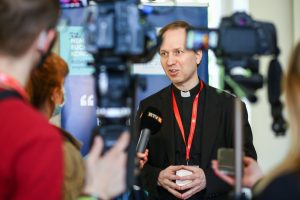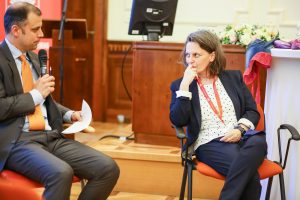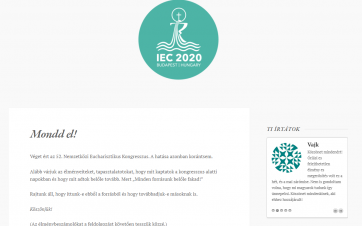
Doing good and doing it the right way!

Linked to the preparatory program for the 52nd International Eucharistic Congress, an international scientific conference on the Catholic Church’s charitable ministry was held in Esztergom at the St. Adalbert Event Centre. Caritas Hungary, the official relief agency of the Hungarian Catholic Church celebrates the ninetieth anniversary of its foundation and the thirtieth anniversary of its restart. The conference program included lectures on the two thousand-years history of Catholic Church’s charitable activities, as well as discussions on the future and the challenges that an aid organisation should face in the 21st century. Speeches were delivered by local and international speakers.
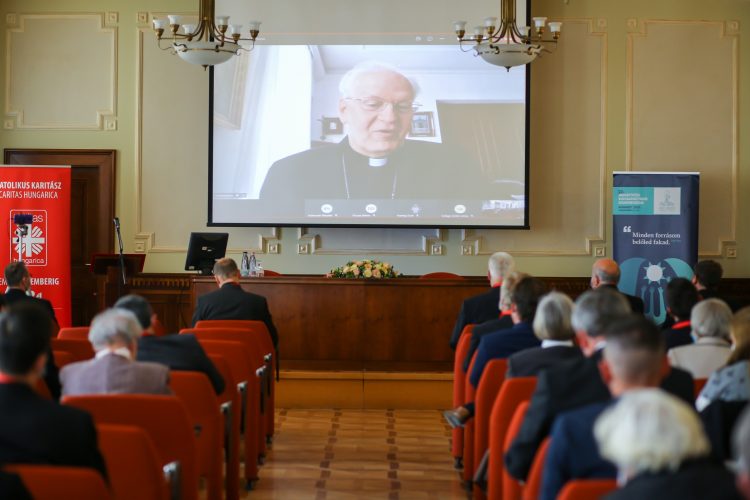
Péter Erdő: Let’s show and exercise the helping love!
The conference was opened by Péter Erdő. In his welcome speech the Cardinal, Primate emphasized that helping love has always been a special attribute of Christianity. The Cardinal recalled the dawn and development of the charitable activity, and the period of the Christian persecutions in the 3rd century in the Roman Empire when the activity of providing assistance to the poor, the sick and the elderlies had reached such a widespread level that even the Roman Emperors took notice of it. Memories and notes from early Christianity give reports on food distribution, reaching out to the needy, as well as on the obligation of hospitality. “Nowadays, when we return again to the strong awareness that the Christian community is a coherent fraternal community, we should vivify all these experiences. The Church is more and more active in the field of charity. Let’s take the International Eucharistic Congress as an occasion and opportunity to show and exercise something from this helping love. Let’s further strengthen the unity of our community, expressing that the source we receive from the Eucharist is going to flood our entire surroundings with life-giving water.” - underlined Péter Erdő.

Charitable ministry goes beyond the Church
“The love of Christ urges us on” – as Cardinal Peter A. Turkson titled his lecture. The Cardinal, serving also as Prefect of the Dicastery for Promoting Integral Human Development gave a brief summary on the work of the Dicastery, having been created according to Pope Francis’ wishes and started its activity in January 2017. The Dicastery has exclusive competence over matters affecting the issues of migration, the needy, the ill, the excluded and marginalised, the victims of armed conflicts and natural disasters, the imprisoned, the unemployed, all forms of slavery and torture, moreover the of the ones whose dignity is at risk. The merciful love that has been mentioned so many times by Pope Benedict XIV and Pope Francis, is equally as important in the Church as the justice in our societies – highlighted Cardinal Turkson adding that the demonstration of all the deeds that root in love goes far beyond the Church. The Catholic Church maintains a great number of organisations operating beyond the ecclesiastical framework as well. In addition to the crisis zones, the Catholic aid and humanitarian organisations appear even in countries with Islamic dominance. This fact perfectly illustrates the Church’s ecumenical responsibility towards humanity and the world – expressed his view the Cardinal.
Dr Klaus Baumann, Professor of the Albert-Ludwig University, Freiburg, gave a lecture on the importance of the caritas as a science. The first ever Caritas organisation has been instituted in Freiburg.

Global responsibility
Antal Spányi, diocesan, President of Caritas Hungary presented the organisation’s operating framework and its focus areas. His speech recalled the Caritas’ 90-years of history, giving an overall and detailed overview on the results of the common works carried out in the past decades. The Caritas works on eight main areas: families in need, addicts, elderly and patients, refugees, disabled for social or other reasons, homeless, disasters and humanitarian relief, and disadvantaged minor communities beyond the borders.
In addition to the support, a special focus is put on giving tools to as many people as possible, enabling them to transform their own lives and be self-sufficient persons. Antal Spányi outlined that Caritas Hungary has become one of the largest aid organisations of Hungary. Caritas Hungary’s social work to provide assistance for the needy is organised by 16 diocesan Caritas centres and 18 social institutions, in eight hundred parish caritas groups with ten thousand volunteers and 300 full-time employees.
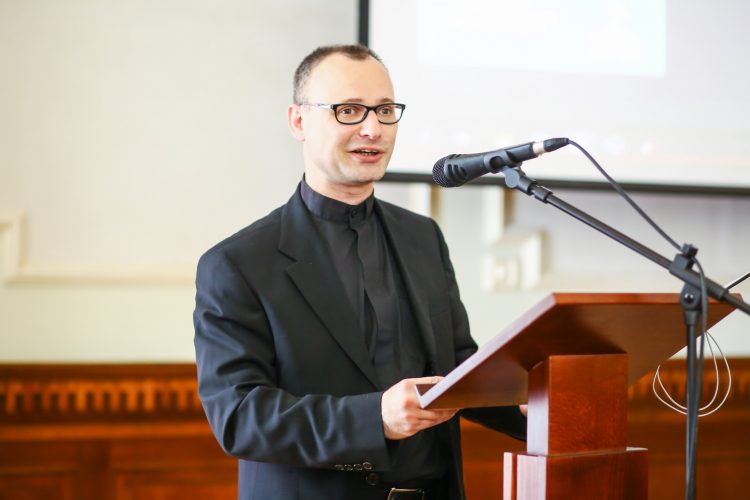
Lóránd Ujházi, Senior university researcher at the National University of Public Service talked about the service of charitable love that appears in all the three wings –Sanctification, Teaching, Governing - of the Church’s triple mission, adding that the Church’s performance has definitely become stronger and stronger when dealing with the new types of crisis situations of the present globalizing world. This appearance has nothing to do with security policy reflections, rather can be considered as the mission – as the fraternal order- that has been endowed to the Church by the founder. Thus, the Holy See can raise his word for all the victims of conflicts around the world. Nowadays the Catholic Church is in a period of grace as for the implementation of the Synod’s provisions and the cooperation with international organisations, moreover is visibly present, but not as a follower of the events but by being up-to-date on the world affairs through constant monitoring the security policy situation. The Church can fulfil its triple mission in the spirit of the Caritas, and is able to reflect all the pains and crises of mankind.

Two thousand years of knowledge
Tamás Tóth, church historian and General Secretary of the Hungarian Catholic Bishops’ Conference gave a church history overview on handling the crisis of extreme poverty and diversified character that of. Then he recalled Saint Elisabeth of Hungary, whose devoted love to the poor made her an enduring symbol of Christian charity. Tamás Tóth also spoke about the Catholic Pawnshop, a medieval institution with the purpose of granting loan to the needy in exchange of an item as collateral, so as to protect them from the burden of loan-sharking. The lecturer’s comprehensive presentation clearly highlighted the diverseness of the supportive ecclesiastical presence. He mentioned some 16th century founders of religious orders, who devoted themselves and their communities to various charitable activities, from free education to nursing care.
Miklós Soltész, State Secretary for Relations with the Church and Ethnic Communities of Hungary spoke about the change of attitude that has taken place in Hungary over the past decades, resulting in a successful partnership and cooperation between the Government and the churches in the fields of social care and charitable works.
We are in the same boat
“The mission of the Caritas is rooted in the belief that love is God’s greatest gift to the mankind, and manifests in serving the world’s poorest, with whom even Jesus has identified himself” - emphasized Aloysius John, Secretary General for the Caritas Internationalis, formerly being Head of Institutional Development and Capacity Building of same Organisation.
Nowadays we are in need of “creative solidarity” – he said. The post-COVID world will be completely different from the current one, requiring a new strategy for the coming years. “The pandemic revived the feeling that we are a global community. We are all in the same boat, where one person’s problem is everyone’s problem.” – added the Secretary General. As a leader of an international organisation he spotlighted the importance of capacity development, since improving the quality of professional social work is much in demand.

A mission from person to person
Dániel Solymári, International Relationship Manager at the Hungarian Charity Service of the Order of Malta gave a lecture in light of Pope Francis’ Encyclical "Fratelli Tutti”, on the Christian modes of charity, titled as “Good and well”. He briefly summarized the changes in the environmental and security policy of our world and their consequences. He showed the audience a photograph of a little girl living in a Jordanian refugee camp, whose parents and even the grandparents were born there on account of having been expelled from their homeland. What kind of a future or vision this little girl can have? – asked the aid organisation leader. Dániel Solymári pointed out that the migration number has been increased by 100 million and 40 % of the displaced people, being forced to migrate, are minors. Collaboration, close relationships and openness are of high importance in handling the migration crisis. He referred to Pope Francis’ Encyclical, in which the Holy Father highlighted that we cannot stay far away from one another. Dániel Solymári is of the view that we should think about the entire society as if it were our own family. Whenever a family member falls sick, the whole family suffers and does his best to help. Now it’s time to take action, to take the right help in the right way – closed his speech Dániel Solymári.

Richárd Zagyva, General Deputy Director of the Caritas Hungary launched his speech on the social and humanitarian performances related to the Hungarian Catholic Church and sketched the “Charitable Service Map of the Church”. He made a point of the fact that they do not use the expression “caring the poor” on purpose, since charitable love and aid goes far beyond it. Charity has openness for all forms of poverty, dealing with all the marginalised people whose problems are less visible in the wake of the negative effects of globalization. This includes, amongst others, the victims of sexual abuse and human trafficking, sufferers of local epidemics, and all those excluded due to their disability or for any other reason. The Church’s caritas organisation should be based on faith and should initiate overall and thorough changes to improve the situation of those in need of protection.
There is no peace without openness and understanding
Tadeusz Kamiński, Associate Professor of the UKSW, Warsaw has conducted research on Church-State cooperation in social services for quite a long time. He presented three models that have already been present in Europe, differentiating the models according to the way the legislators divide the participation of the state and the Church, in particular in the field of social welfare. He reckoned – especially underlying the Polish practice- that the Government and Church should cooperate.
Attila Fülöp, State Secretary for Social Affairs of the Ministry of Human Capacities gave an overview on the development of cooperation between the Church and the State. He emphasized that the social welfare system cannot be a State monopoly, adding that the Church has two thousand years of experience, knowledge and vocation in aid and charitable activities, which no one can ever replace. He called it a misconception to take aid service as a State monopoly only.
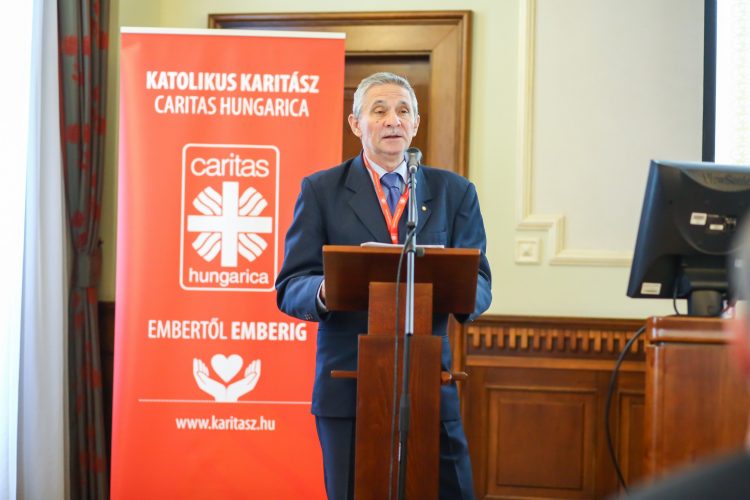
There is no peace without openness and understanding, said József Padányi, Major General and Vice-Rector at the National University of Public Service. His speech focused on the experiences of the civil-military cooperation. He made a presentation on the Army Pastoral Service operating at the Hungarian Defence Forces, as well as on its role and significance. Major General underlined that the key point to achieve success in the field of peace missions in Bosnia or elsewhere is the collaboration with the church leaders. Churchmen get along better and easily with each other – noted József Padányi.
The conference continued with parallel section seats, topics included: best practices, the future of the Caritas mission, as well as its role in the institutional health care.
The conference was closed by the speech of Gábor Écsy, Director of Caritas Hungary.
Photo: Magyar Kurír/Attila Lambert

